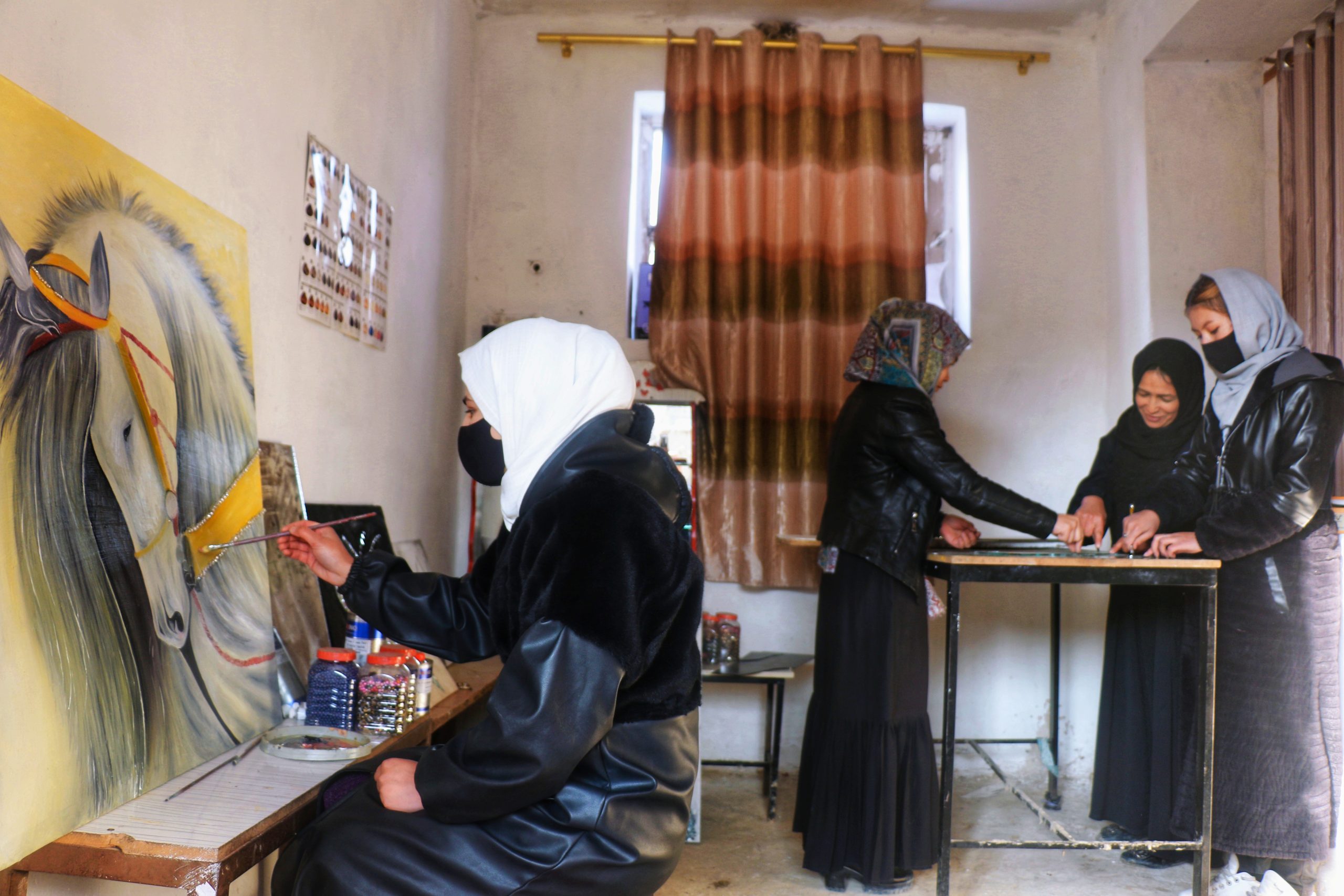 By: Hafiz
By: Hafiz
Translated by: Mohammad Sakhi Rezaie
A brief Account of the General Situation
“A flat plain, unmarked and sunburnt,
Without a blade of grass or sign of neighborhood,
Nothing to eat and no place to sit.
Despite all this, on the surface of their heart,
A huge crowd has gathered.
A million eyes, a million boots in line,
Without any emotion on their faces, they are waiting for a sign.”
(W. H. Oden)
As much as it is concerned with the life of women, in general and briefly, the life of Afghan women under Taliban is the same “flat plain” mentioned in the verse of Oden. Oden was probably talking about the lost moral perspective of wartime. As the lined and long boots of the war had left nothing to live, the plains were empty, unmarked, sunburned and dry. But on the barren expanse of the same empty plains, groups of groups, millions of eyes and millions of boots were standing without any sense of shame and honor, waiting for a sign and an order to empty another place of life. In Afghanistan, under the Taliban rule, women have been completely excluded from the social life and deprived of their equal rights with men. From a feminist perspective, these deserts that are the scene of Taliban gallop, are totally dried up and unmarked and sunburned. It is where all emotions and green values of women are levelled to the earth under the boots of Taliban. There is a long line of guns and Taliban as far as the eye can see, and all of these Taliban, armed to the teeth, are waiting for a new sign where to close the door on the women and where to see a hair of the women’s clothes and hijab. Then there is gun, boot and butt stock. Work, recreation, dance, singing, loving, trip, education, driving and … are all banned on women.
The Lost Days of Dashte Barchi
In the flat plain of Taliban, there were also villages which did not change much after they took over Afghanistan again. In many areas where Pashtuns live, from the provinces to the mud houses of Kabul, there were men who did not allow their women to work, go to school, university and educational centers. Optional coverage, was not an issue for them from the beginning, and that’s why they did not challenge the new restrictions of Taliban against women. Because, the same culture of dominance and suppression existed there and women, deprived of education and work, never went out with their faces uncovered. In many Pashtun families, there was no concern about sports, running, cinema and music for women.
But Barchi was totally different. The gender war was diminishing gradually in Barchi, and the tasks were allocated to the people based on their talent and capacity and not their gender. It did not count if you were a boy or a girl or you were a man or woman, as long as you had the talent and facilities for sports, the talent and facilities for studying, the talent and facilities for music or any other work, you could work according to your desire and facilities. But presence of Talinan in Barchi disrupted all these modern values. As in a morning when you wake up and see that it is frozen everywhere; Taliban took in the same way Barchi to the frozen and cold season. Maybe it is not that gloomy for the Taliban who had not lived in Barchi and for those Pashtuns who had lived at the suburbs with the same dominant culture of oppression and dominance, but for those who had seen these differences and lived them, that painful growth of poplar trees which now each of which passes through the dry seasons is very sad.
Centralized Repressions; Hidden Resistances
New reports show Taliban are deeply divided on governance policies. They have difference nearly on all of issues. Contrary to this, they share a common goal, at least they show they all agree on this policy; it is suppression and exclusion of women.
For more than two years, the Taliban have been single-minded and focused on suppressing women. But women have also had hidden but exemplary resistance at the height of domination and oppression. One of the various types of resistance is the secret education of the girls in Kabul.
After the wave of arrests and baseless abducting of young women and girls by Taliban in Dashte Barchi, many girls could not go to educational centers. Even, they could not go out of home to the bakery in the alley. These same girls who were born in Barchi, or at least from wherever they came from, had experienced and understood the different face of Barchi. A general self-awareness had been found in Barchi and people understood that they were going the right way. But on the same days when the wave of women’s arrests started and the courses were completely empty of their presence, many of the same girls who understood Barchi’s different face, started their hidden resistance on the same days. They understood the growth of the poplars in the garden, which were now going through dry seasons, and as such they did not leave the scene completely deserted and empty.
Perhaps it is very infuriating for the Taliban, who want to deprive girls of education at any cost, and very sad for those who understand so much passion, effort and struggle, that the young and teenage girls hide in a corner, in a room, with fear and trembling to study. They used to gather in tight and cold places without electricity or heating and studied a new foreign language. They knew that lonely women are cold at the beginning of the season, but they greeted the warm sky of tomorrow from the underground of that cold winter.
Bakht Bigum Haidari, one the girls afraid of going to the educational center alongside her female classmates, was studying at the basement of their house. “When suddenly all girls were not allowed to go to educational centers to study, we did not leave the scene to Taliban.” She said. “It is true we are in danger, but as Taliban do not want us to study and be educated, we shall do it with strong determination.” She added.
At the same time, many girls started home education and concealed resistance in Dashte Barchi. It was a decision decided solely by the girls. And no institution supported and managed it. Without knowing about each other’s plans, the girls were proceeding in a parallel program and struggled for the future of a forbidden life.
In these days that our water goes to the neighboring countries, our mines are looted, the terrorists are further coordinated and replaced in Afghanistan, and all women are forced to stay at home and all young and educated generation of Afghanistan leave the country, yet women and girls in west of Kabul have not left the scene and they gather under their basement, hidden and trembling, unemployed, but have plans and hopes for the future children of Afghanistan.
It is while Taliban in a “mission of find and hit” look for new pretexts to further restrict women and girls. Look at the women alone at the beginning of the cold season!


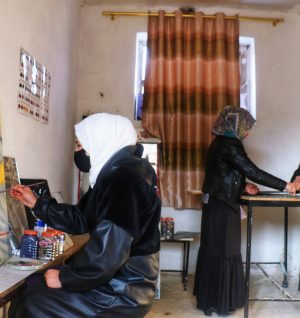
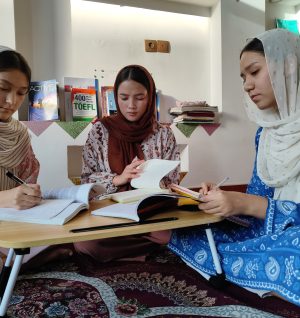
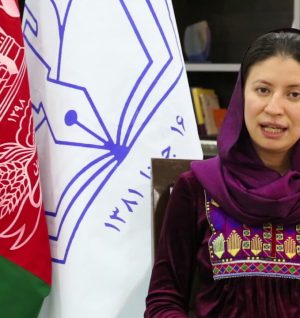

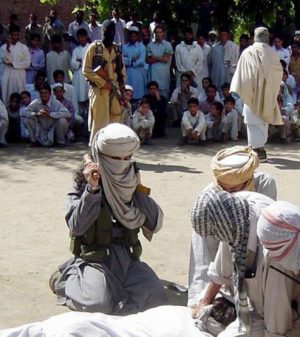
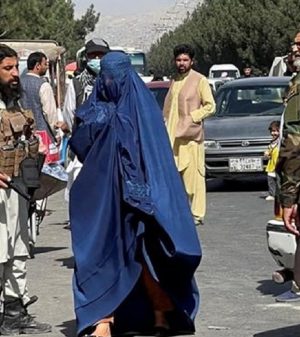

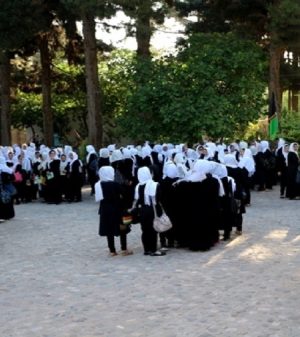
Add Comment